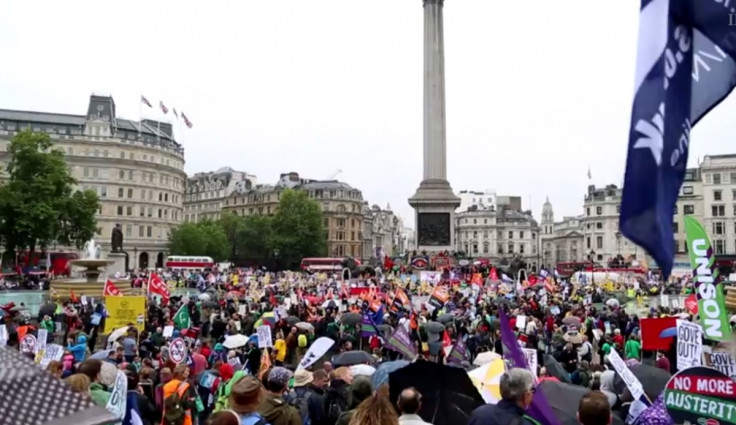UK Strikes: Number of Working Days Lost Rockets 78% in 2013

There was a 78% leap in the number of working days lost to strike action between 2012 and 2013, according to official figures.
The Office for National Statistics (ONS) said there were 443,600 working days lost due to labour disputes in 2013, up from 248,800 in 2012. And there were more workers involved, with 395,400 walking out against 236,800 a year before.
But there were fewer stoppages overall: 114 in 2013 compared to 131 in 2012. Of those, 50 were in the public sector and 64 in the private.
The ONS data shows the worst affected roles were in technical and admin activities, which saw 28 stoppages; education, which also saw 28 stoppages; and transport, storage, information and communication, which saw 20 stoppages.
Relations between unions and bosses have been tense in the aftermath of the financial crisis, amid job cuts and wage freezes.
There has been an ongoing real-terms fall in pay as price inflation far outpaces wage growth. ONS data shows that inflation hit 1.9% in June 2014, while total pay growth was 0.3% on average in May 2014.
And the government has slashed departmental budgets and put a 1% cap on public sector pay rises under its austerity programme to balance the Treasury's books and erase its structural deficit.
In 2013 there was a number of high profile strike actions taken. Teachers, firefighters, Royal Mail workers, university staff were among those to walk out during the year in various disputes.
"Nineteen out of every 20 working days lost to industrial action in 2013 were for pay disputes, most of which were in the public sector," said Frances O'Grady, general secretary of the Trades Union Congress (TUC).
"Strikes happen as a last resort when workers feel they're not being listened to and an employer is acting unreasonably.
"With the government shutting public sector workers out of the recovery and insisting that real pay cuts will continue to 2018, our teachers, nurses, fire fighters and others are being unfairly pushed into a corner.
"Pay disputes are best settled through negotiation, so we need the government to stop spoiling for a fight and to start talking."
Prime Minister David Cameron has said he will introduce new strike laws if his Conservative party wins the 2015 general election. He wants to a minimum turnout threshold on strike ballots of 50%.
But unions say they see low turnouts because they are shackled by strike laws introduced by Margaret Thatcher which mean they have to ballot by post and cannot do it in workplaces or online.
© Copyright IBTimes 2025. All rights reserved.






















